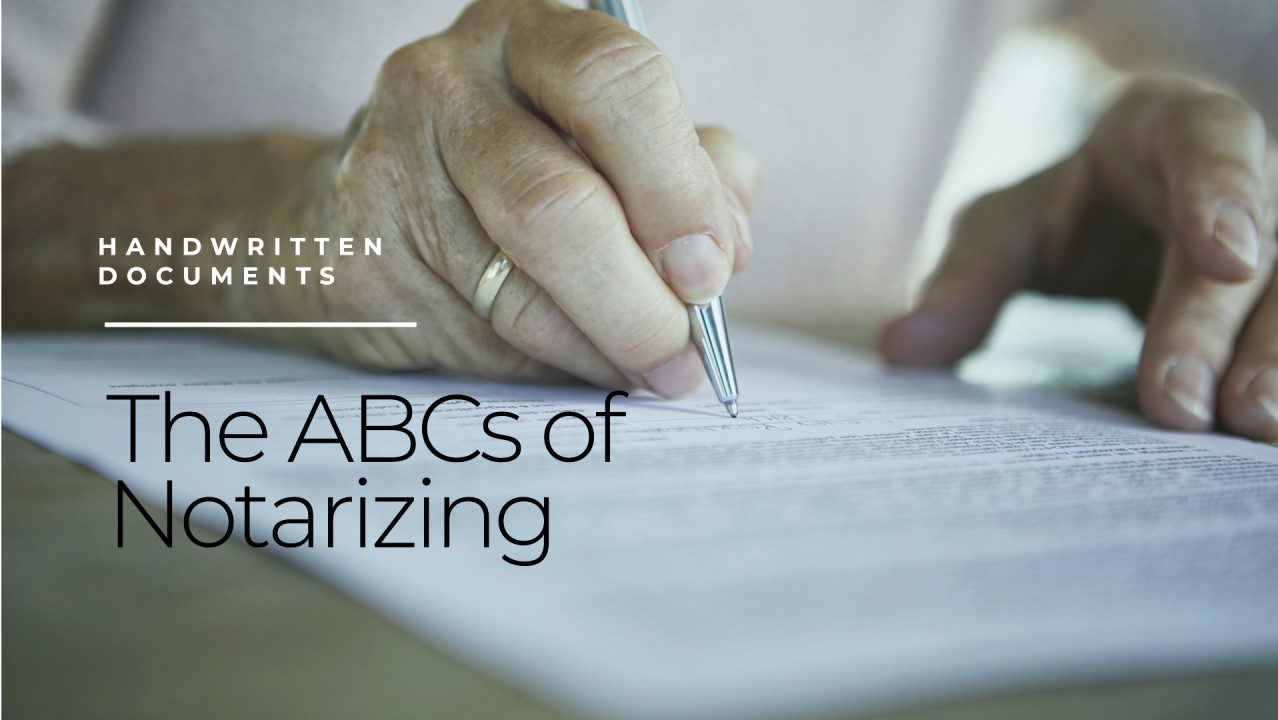
The ABCs of Notarizing a Handwritten Document
In the world of notarization, handwritten documents often perplex both signers and Notaries alike. Today, we delve into the intricacies of notarizing a handwritten document, unraveling its various aspects and procedures for you to follow.
Understanding Notarization of Handwritten Documents
Yes, it’s legal to notarize handwritten documents! If you’re wondering why, here’s your answer. In the United States’ early years, most documents were handwritten, and Notaries commonly notarized them as part of their authorized notarial functions. This practice still holds and covers several types of documents, including wills, deeds, contracts, powers of attorney, and more. These can all be handwritten and legally notarized.
It’s essential, however, to understand that it’s the signer’s signature that is notarized, not the document itself. And signatures are almost always handwritten.
The Procedure
Ensuring the legality of a notarized document requires attaching a notarial certificate to it. With handwritten documents, this certificate can also be handwritten, machine-printed, or typed. Regardless of the format of the paper instrument, the law chiefly concerns itself with the substance of the document’s content. If the content is satisfactory and the certificate wording aligns with your state’s laws, a handwritten notarial certificate is acceptable.
Tackling Potential Concerns
The most common issue with a handwritten document arises if it lacks notarial certificate wording. Many signers aren’t aware of the need for a certificate for their notarial act request. In such cases, the signer, not the Notary, must decide on the type of notarization to be performed. The Notary can provide samples of certificate , acknowledgments, verifications on oath or affirmation, and the signer can choose the appropriate option.
Addressing Misconceptions
Often, signers might believe that notarization validates or legalizes a document. This needs to be clarified. Notarization only verifies the signer’s identity, signature authenticity, and willingness and competence to sign. Just to remind you, as a Notary, you must avoid providing legal advice to the signer. For any legal queries, they should be directed to a qualified attorney.
The best approach to handling a request to notarize a handwritten document is to adhere strictly to Notary law and best practices. This principle will always steer you right, avoiding unnecessary complications and misunderstandings.
Writing and notarizing a handwritten document can indeed take time and effort. However, with this knowledge, you, as a Notary, can help signers through the process and make sure the legal and correctness of the document.
Remember, a well-informed Notary is a confident Notary!
